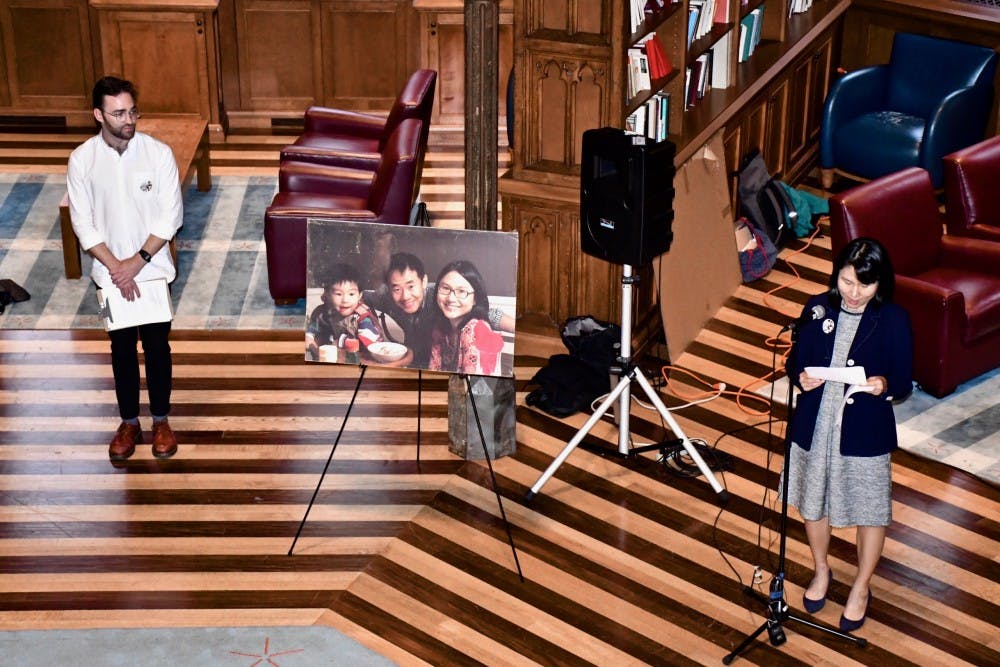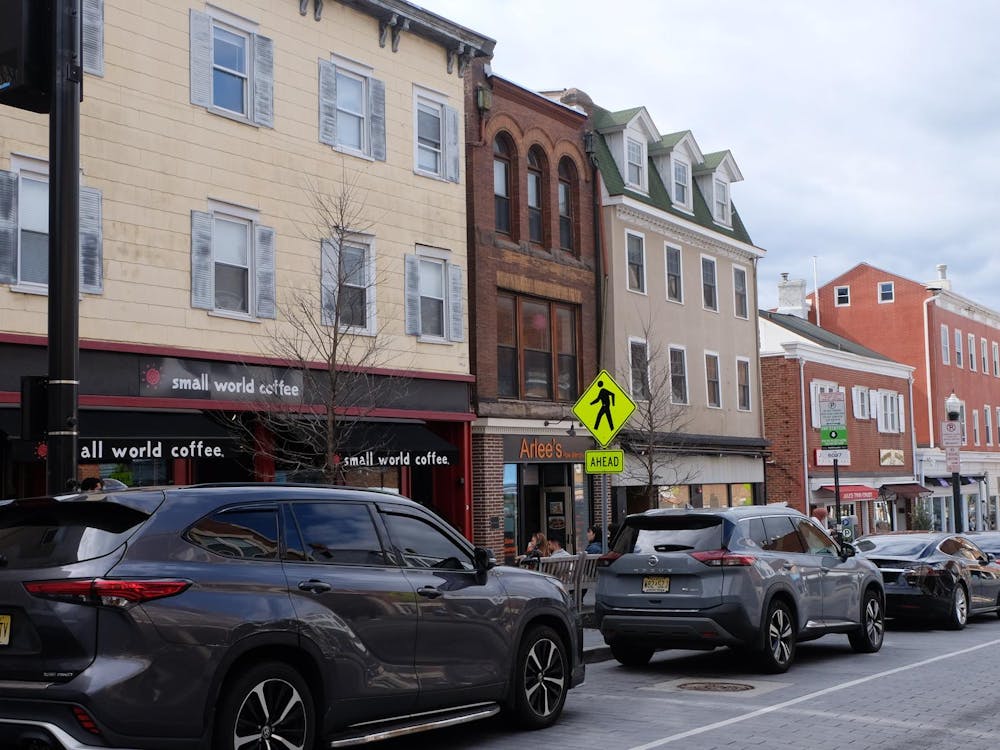Xiyue Wang GS and his wife Hua Qu GS ’21 filed suit against Princeton in November 2021, alleging the University caused him “severe personal injuries and other irreparable harm” through “grossly negligent acts.”
The lawsuit comes after Wang spent over three years detained in Iran, where local authorities charged the scholar with espionage. At the time of his arrest, Wang was overseas completing academic research while pursuing a doctorate in Eurasian history with the University.
Filed in the Superior Court of New Jersey in Mercer County, the lawsuit accuses the University of “wanton” misconduct and blames Nassau Hall for encouraging Wang to study in Iran, not taking the scholar’s safety concerns seriously, and failing to adequately lobby for his release.
“Actions by Princeton needlessly and callously prolonged Mr. Wang’s imprisonment and exacerbated the harm he and the other Plaintiffs experienced and continue to experience to this day,” the suit claims.
The plaintiffs argue that various academic and administrative actors within the University contributed to these alleged harms.
The lawsuit cites the Graduate School website and argues that “faculty advisers wield nearly absolute control over their advisees’ decision-making, which in turn makes it extremely difficult, if not impossible, for student-advisees to defy or even second-guess their faculty advisers’ advice and guidance.”
Wang and his wife also claim that “in prioritizing the school’s coveted reputation and relationship with the terrorist state of Iran over the safety of its student, Princeton’s conduct gave rise to and perpetuated Mr. Wang’s inevitable tragic fate.”
The University is expected to answer Wang and Qu’s legal complaint in court by Jan. 14.

In an email to The Daily Princetonian, Deputy University Spokesperson Michael Hotchkiss wrote that “Xiyue Wang, Hua Qu, and their son are valued members of the Princeton University community, and the University’s singular focus has always been the safety and well-being of Mr. Wang.”
“We are surprised and disappointed by this complaint and believe it is without merit,” Hotchkiss added.
The ‘Prince’ asked for comment on specific allegations from the lawsuit for this story and the University did not provide further context beyond the general statement.
Wang deferred a request for comment from the ‘Prince’ to his attorneys, who declined to comment. Qu did not respond to a request for comment.

The ‘Prince’ additionally reached out to a number of individuals named in the complaint, including Behrooz Ghamari-Tabrizi, the chair of the University Department of Near Eastern Studies; Kevan Harris, the former acting director of the Princeton Iran Center; and John F. Haldon, the former director of the Princeton Iran Center. They all declined to comment, citing the ongoing nature of the litigation.
The lawsuit alleges that, in an email to Wang in 2016, Harris noted that “‘it’s a good time to go [to Iran] – looks like they are in a good mood over there. Take advantage of it!’” Haldon was similarly enthused, writing that Wang’s research represented a “pioneering visit for Princeton.”
After Wang’s laptop and passport were seized by Iranian authorities, the complaint further alleges that “Princeton advised him not to seek sanctuary at the Swiss Embassy, the only entity in Iran that could have possibly kept Mr. Wang safe.” The United States does not maintain diplomatic relations with Iran and Switzerland oversees local American interests.
Upon Wang’s detention in Evin Prison — which he claims began with 19 days of interrogation, threats, and abuse — he and Qu argue that the University did not provide ample support in advocating for his release, writing that “[a]ll, and any, publicity regarding Mr. Wang’s arrest and detention was viewed as a negative for Princeton and the Princeton Iran Center.”
The complaint further claims that the University “did everything in their power to suppress the story from national media outlets to protect their own reputation and political interest.”
When Qu approached the University with an opportunity to broadcast the circumstances of Wang’s imprisonment via the BBC Persian media outlet, she alleges she was advised to turn the opportunity down by Professor Stephen Kotkin, Wang’s academic advisor. According to the lawsuit, Qu expressed “concern that even a few more months in detention could seriously negatively impact Mr. Wang’s condition.” Wang would spend two more years in prison after this exchange.
Kotkin did not respond to a request for comment.
Wang was freed in a prisoner swap between the United States and Iran in December of 2019 following years of protests and vigils calling for his release, many led in large part by Qu. Since returning stateside he has continued to pursue his doctorate at the University and written extensively about his experience in prison.
He presently serves as a national security advisor for Rep. Jim Banks (R-Ind.) and previously worked as a Jeane Kirkpatrick Fellow at the American Enterprise Institute.
Andrew Somerville is a Co-Head News Editor who has covered USG, University and COVID-related affairs. He can be reached at jas19@princeton.edu or on Twitter @andr3wsom.
Sam Kagan is the Head Data Editor and a senior writer with experience reporting on university finances, alumni in government, university COVID-19 policy, and more. His projects, including the Frosh Survey, focus on numerical storytelling and data journalism. He previously served as a news editor. Sam can be reached at skagan@princeton.edu or on Twitter @thesamkagan.








